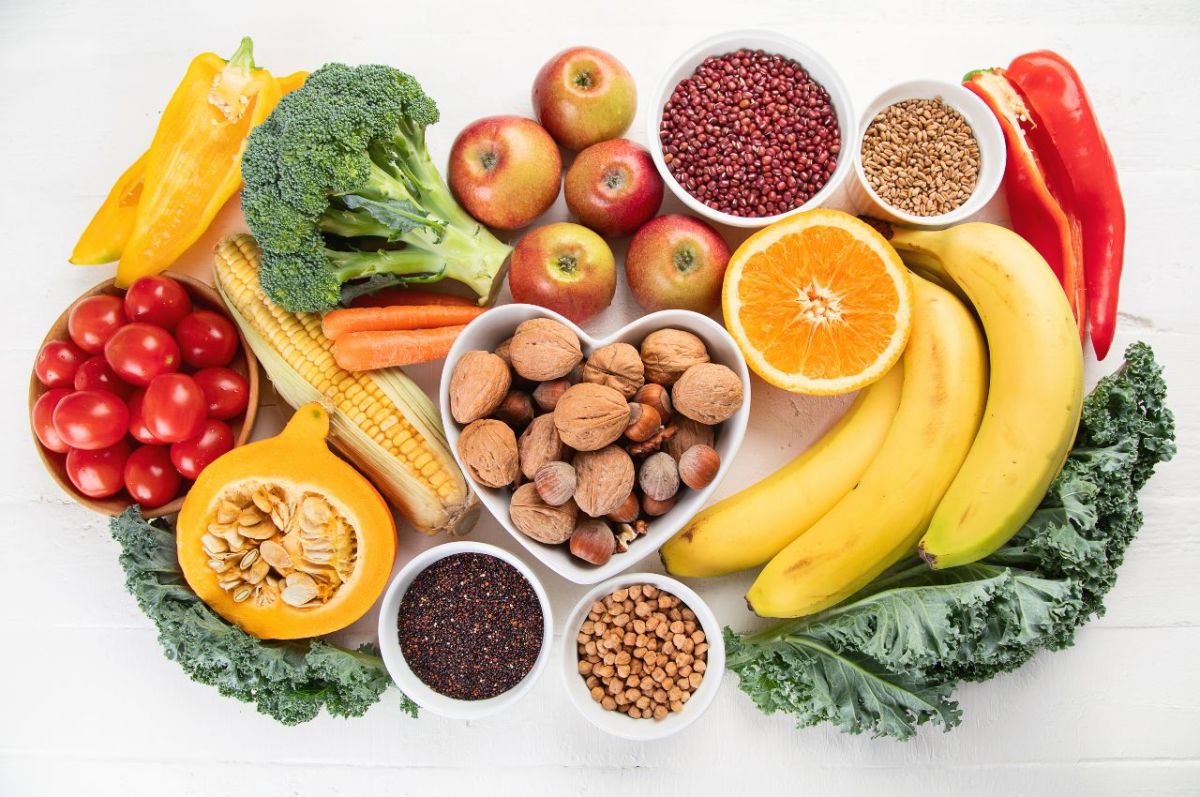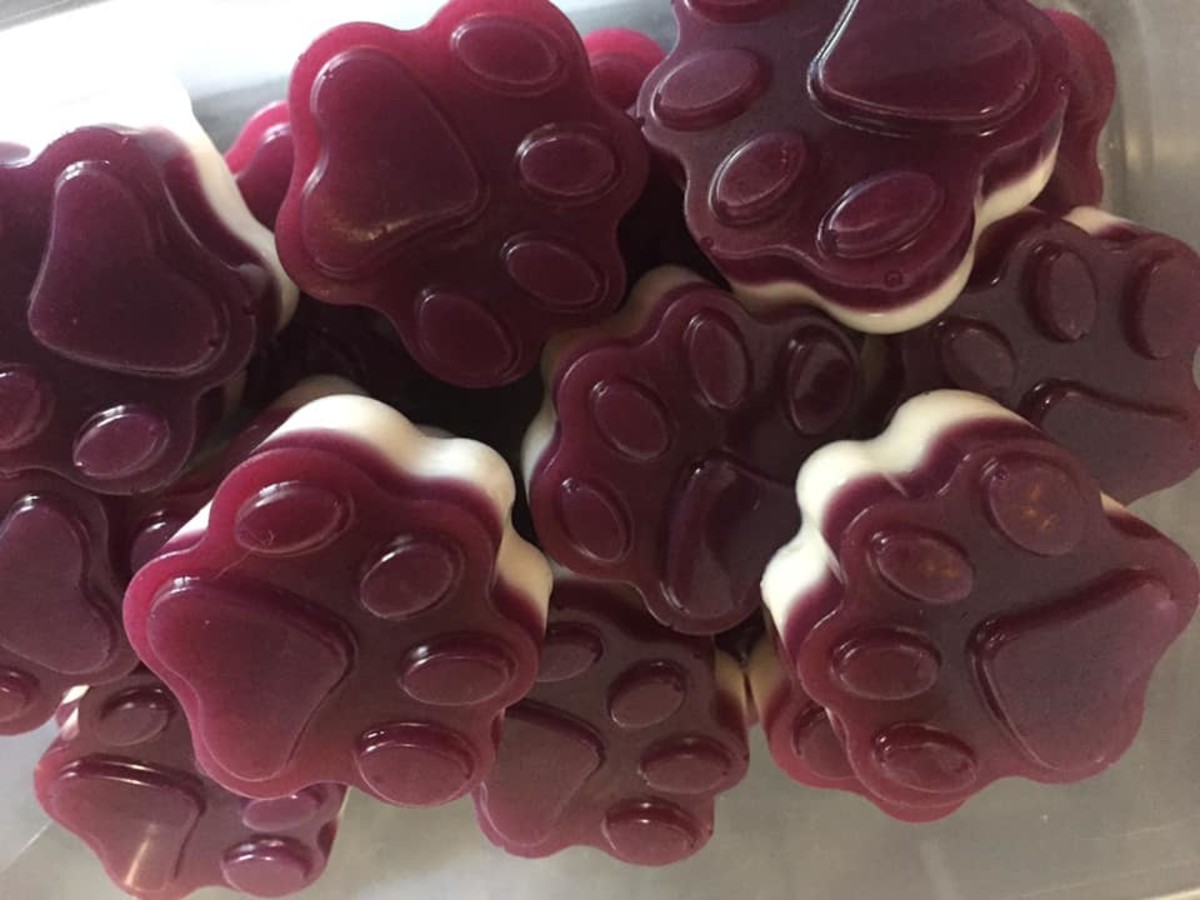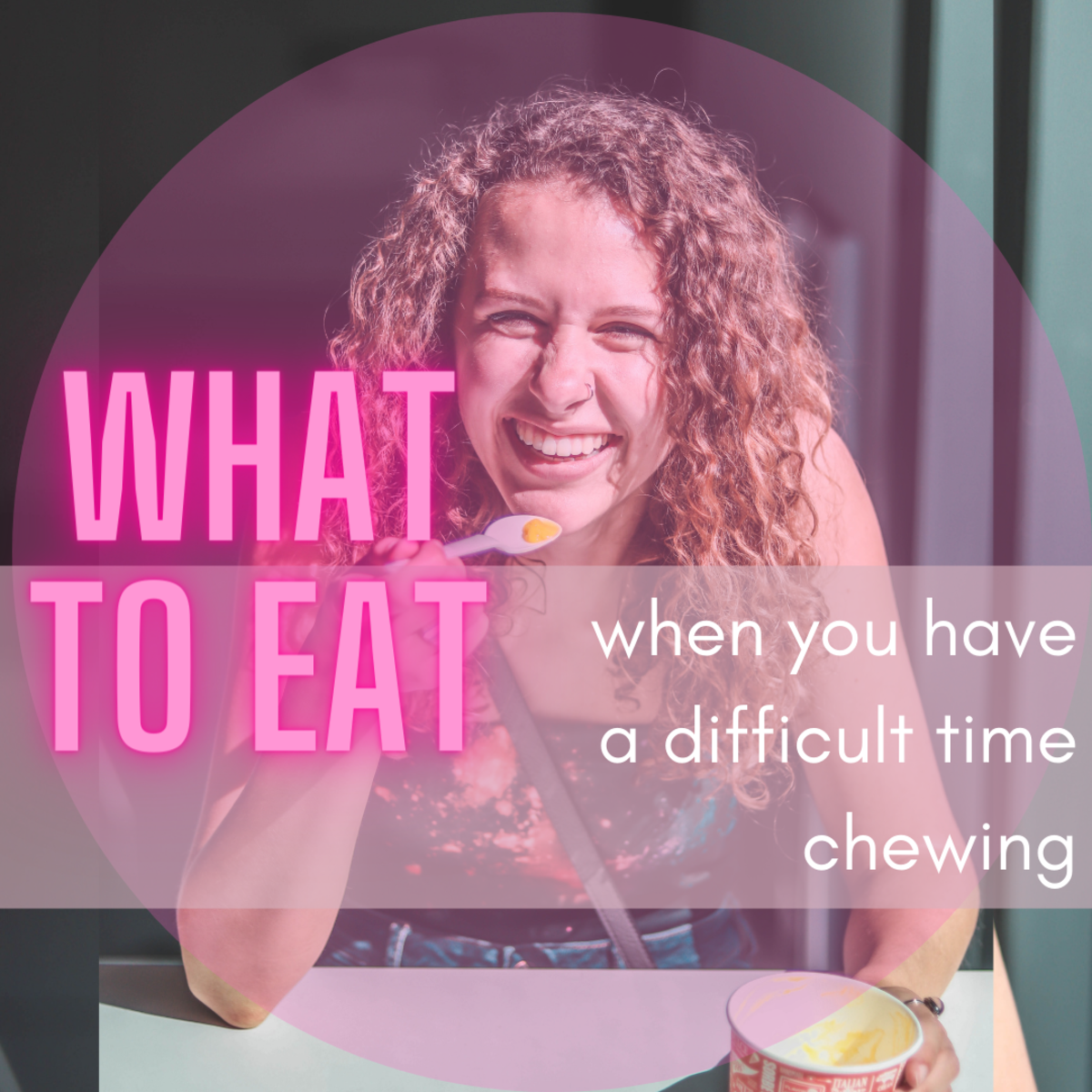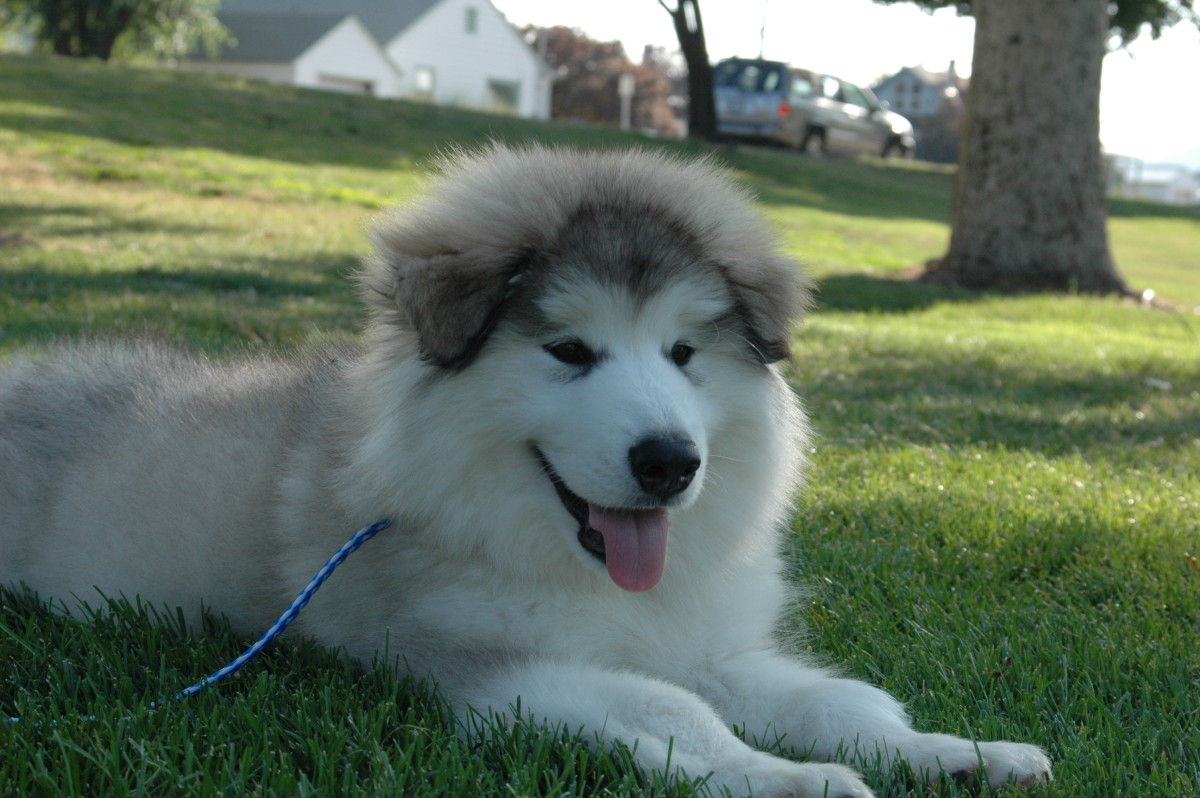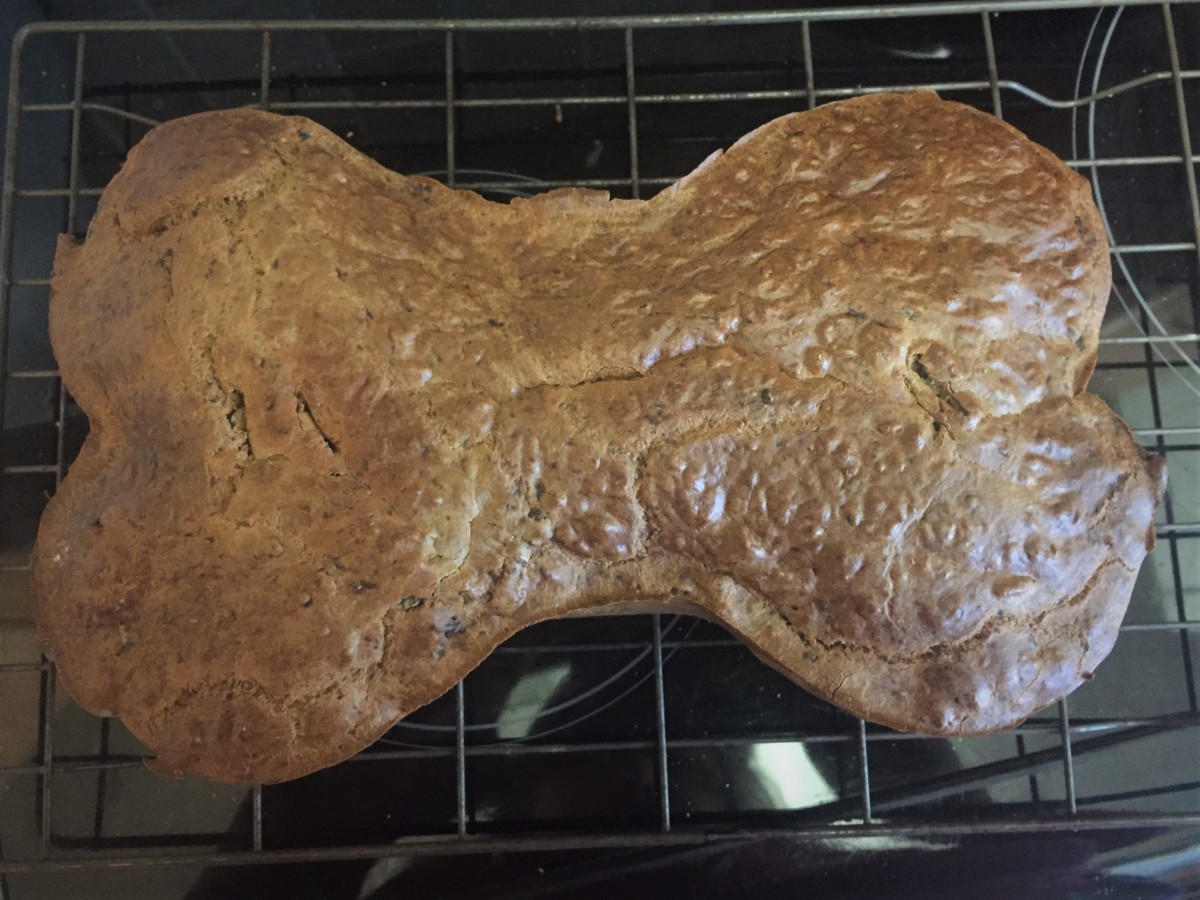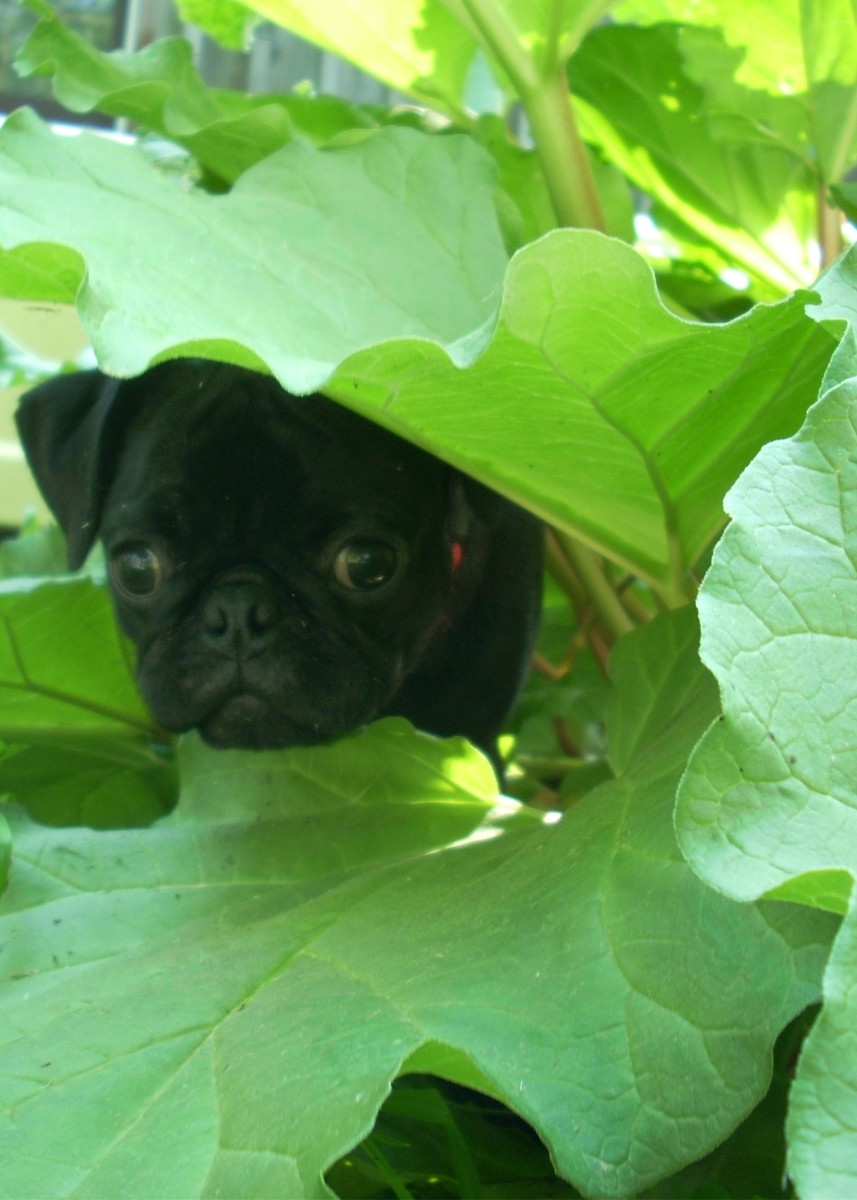- HubPages»
- Pets and Animals»
- Dogs & Dog Breeds»
- Dog Food
Holistic Care: An Adult Dog Nutrient Guild

Listening To The Dog
"Speak to the dog in language of the dog about what matters to the heart of the dog."
Bryan & Jeff Eisenberg, Call To Action
A Dog's Needs
A dog stomach is designed larger than a human so they don’t chew their food the way we do as their stomach does their chewing since dog teeth are made for tearing and cutting. Their stomach is comprised of sixty percent of the digestive tract, therefore a dog needs larger meals once a day but it is recommended a dog fast once a week for twenty-four hours to clean their system out. When fasting chicken or beef broth can be given and it is best to fast on the same day of the week when you will be home. They need a much higher percentage of protein in their diet and raw meat is an excellent choice as it is natural part of the animal diet which improves a dogs coat that shines, eyes that sparkle and many health problems will improve such as skin, dental problems, and fleas but in some cases over time health issues may disappear completely.
Best to feed a healthy dog one large meal in the evening but your pet may prefer to eat at a different time of the day. Food is best when served warm or at room temperate so one method is to heat grains and then mix in the other ingredients. Always try to offer a wide variety of food. When possible use purified water or spring water and use glass or stainless steel dishes as aluminum in any form can leave a toxic residue in their food. Vegetables need to be puree in a blender or a food processor. Also, consult with your pet veterinary for nutrient needs as the dog weight determines what percentage they need. This guild is a healthy adult dog as an older dog, and a dog nursing pups their nutrition values are different. A dog that has cancer will require a diet that is low in carbs since carbohydrates cause the cancer cells to grow.
Dog Health & Wellness : The Basics of Dog Health & Wellness - Expert: Jim Leske - Filmmaker: Louis Nathan
Healthy Adult Dog:
Example: A sixty-pound dog that eats eight cups of food a day would need daily about 2 – 3 cups of protein, 3.5 – 4.5 cups of carbohydrates, 1.2 – 2 cups of puree vegetables.
- Protein – 25 – 40 percent by volume
- Carbohydrates – 45 – 55 percent by volume
- Vegetables – 15 – 25 percent by volume
- Supplements
An important part of your pet diet is raw meat which is a natural source of protein, however; cooking will change the meat by the tertiary structure of the protein that will result in loss of nutritional benefits. While it is best to use organic meat you need to trim the fat from beef as cows are treated with drugs/chemicals that are stored in the fat. Contrary to belief dogs aren’t susceptible to salmonella poisoning and they don’t get worms from raw meat but raw fish can cause a type of tapeworm that can be treated easily and harmless but it is rare that your pet will get a worm.
Poultry bones should not be cooked when given to your dog and large bones can be cut into 1-inch size or can be given whole. Uncooked poultry bones are a natural source of calcium, minerals, and nutrients in the bone marrow as this benefit the dog by exercising the jaws and helps keep the molars free of dental calculus. Do not feed your pet ground meats, lamb, and process meats (hot dogs, luncheon meats) as there is a chance they might get parasites, and a wide variety of health issues.
Greyhound and Dog In Landscape
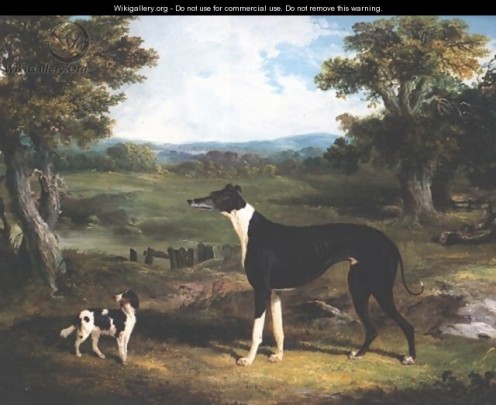
Meats/Organ Meats Proteins
Eggs are a good source of protein but only give no more than one-sixth of a week’s protein since they are very rich. The dairy products are best given raw unpasteurized such as yogurt (lower quality of protein, mostly water), cottage cheese, and ricotta cheese. Soy products are a medium source of protein. Tempeh is kept in the freezer; tofu is kept in the fridge covered by water that is changed daily, and TVP (textured vegetable protein).
- Beef
- Chicken/Turkey
- Rabbit
- Venison (deer)
- Chicken or Calf Liver
- Beef liver (only if organically)
- Beef or Chicken heart
- Gizzards, Kidney, Tripe
- Fish (remove large bones, high source of protein, needs to be lightly steamed or baked enough to get meat off bone)
Beef Chart and Venison Chart
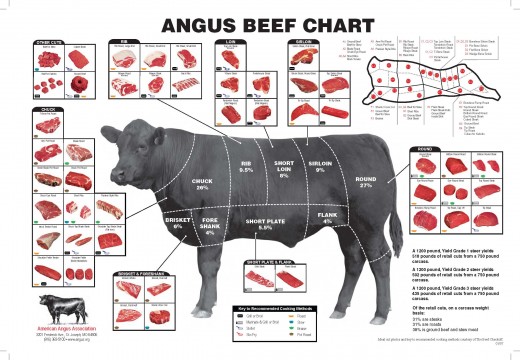
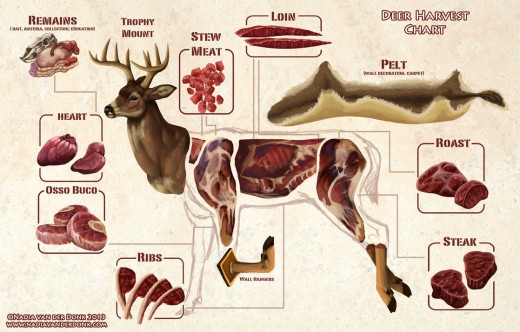
Carbohydrates
Carbohydrates have three major sources whole grains, rolled grains, and cracked grains. Pressure cooked is best and mash or puree since dogs can’t digest the hulls. Avoid tomatoes, eggplant, and peppers as they contain alkaloids.
Whole Grains:
- Brown Rice – can be fed daily
- Millet – good for older dogs
- Buckwheat – good for older dogs
- Barley – good for dogs with kidney problems
Rolled Grains are rolled oats, wheat flakes, rye flakes, barley flakes, and triticale flakes. Cracked grains are bulgur, cracked wheat, and multigrain cereals.
Minor carbohydrates consist of three kind’s starchy vegetables, whole grain pasta, and whole grain bread and crackers. Steam or bake starchy vegetables and whole grain pasta and use no more than half of the carbohydrates. Whole grain bread or crackers use to supplement the carbohydrate source. Whole grain bread should be toasted or stale and served at room temperate.
Beans and legumes - use 1 part beans/legumes to 5 part grains. Can cook them and freeze in small containers then thaw in the fridge which will hold up to five days. Mash before serving but if the beans cause flatulence then leave out of their diet. Types of beans to feed the dog are pinto beans, kidney beans, aduki beans, black beans, and split peas/lentils.
Vegetables (steam and puree) Rootstalk/Fruit Vegetable
- Carrots
- Onions – must be cooked, served raw is toxic
- Kale – 30%
- Celery - Celery green – 30%
- Asparagus
- Green beans
- Beets – use sparing – Beet greens - 30%
- Cauliflower
- Broccoli
- Peas
- Cabbage
- Spinach
- Chard
- Zucchini
- Summer squash
- Collards - 30%
- Endive – 30%
Starchy Vegetables:
- Potatoes include skin
- Fresh corn
- Winter squash
- Yams
- Parsnips
- Turnips
Vegetables
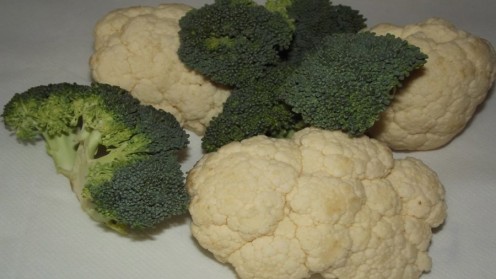
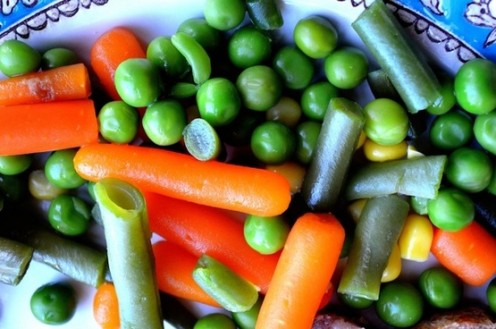
Holistic Vet Dr. Barbara Royal Talks Toxic Foods and Vaccines - Published on Jan 25, 2017 - Nina Laski
Facts About Holistic Supplements For A Healthy Dog
Holistic supplements come in many types and are used for a variety of reasons.Generally, there are three different ways to give your pet the supplements. According to Only Natural Pet, "Comprehensive & Balanced -Our formulas have a full spectrum of ingredients that will maintain your dog's skin & coat, joints, cardiovascular system, immune system, digestive system, nervous system, urinary system, endocrine system, metabolic functions and blood composition.Unique Formulation - Our formulas also include New Zealand green-lipped mussel (Perna canaliculus). This superfood not only has a savory aroma dogs love, it's also a rich source of powerful natural compounds."
NHV Stimmune for Dog Allergies & Immune Support
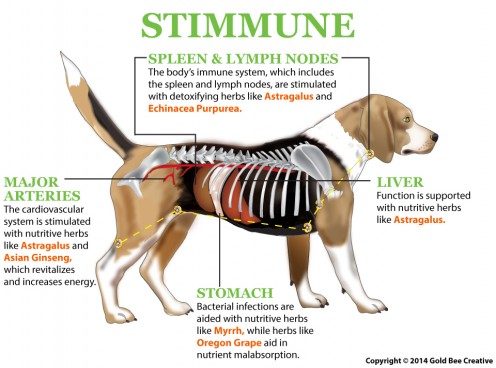
Holistic Supplements
A dietary change, you may want to start with a smaller amount then increase slowly during the course of a week, be sure to read the directions. When ordering online you can see a list of ingredients which some aren't recognized as an essential nutrient by the AAFCO dog food nutrient profiles. Many of these products there are many different types available.
- Daily & Multi-Vitamins - designed for complete health, including skin & coat, joint health, immune support and more
- Antioxidants - offer support for the immune system, allergies, anxiety or aggression, weight management, dental health and more.
- Digestive Enzymes - ensure proper digestion and absorption of nutrients throughout the entire digestive system
- Essential Fatty Acids - Only Natural Pet Omega 3-6-9 -Maintains healthy skin and coat support the immune system, Maintains a healthy nervous system, Supports joint function and health, Maintains heart health, Supports a properly functioning gastrointestinal tract, Maintains healthy organ function
- Nutritional Boosts - help supply nutrients that may be missing from your pet's diet
- Lawn Protection - designed to balance your dog's urine pH, helps reduce ammonia and nitrogen concentration in the urine, supports bladder and urinary tract health
- Nutraceuticals - formulated homeopathic remedy to relieve difficult or uncomfortable symptoms associated with your pet's urinary tract and UTIs
- Probiotics - support healthy digestion, boost the immune system and aid in nutrient absorption.
Information
© 2017 Anna Haun

